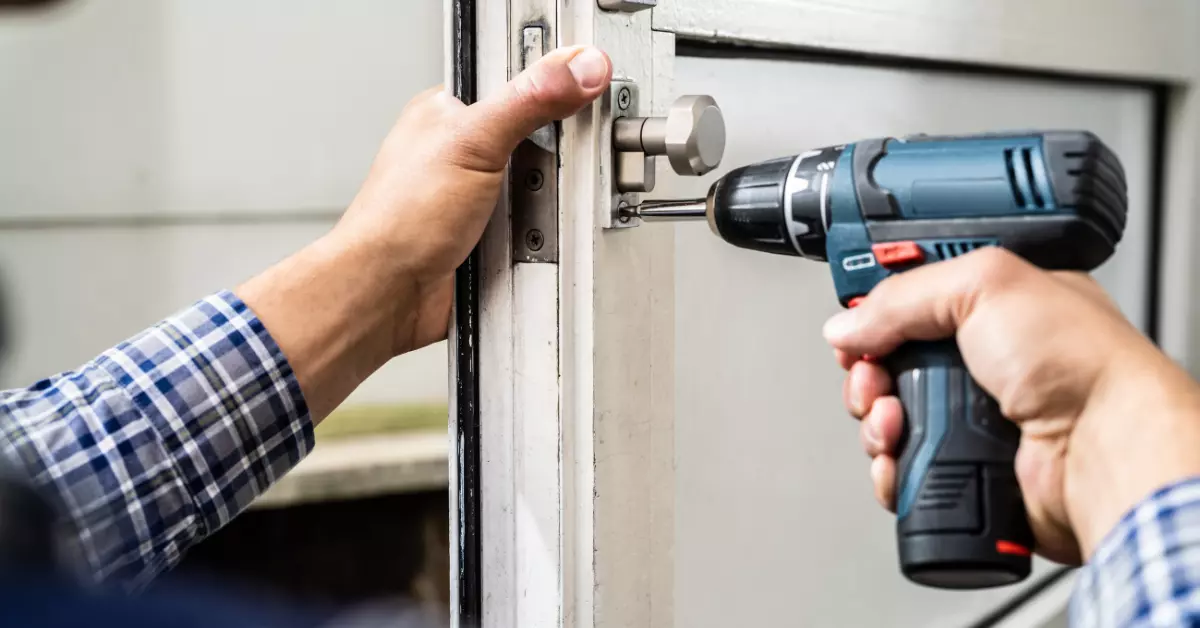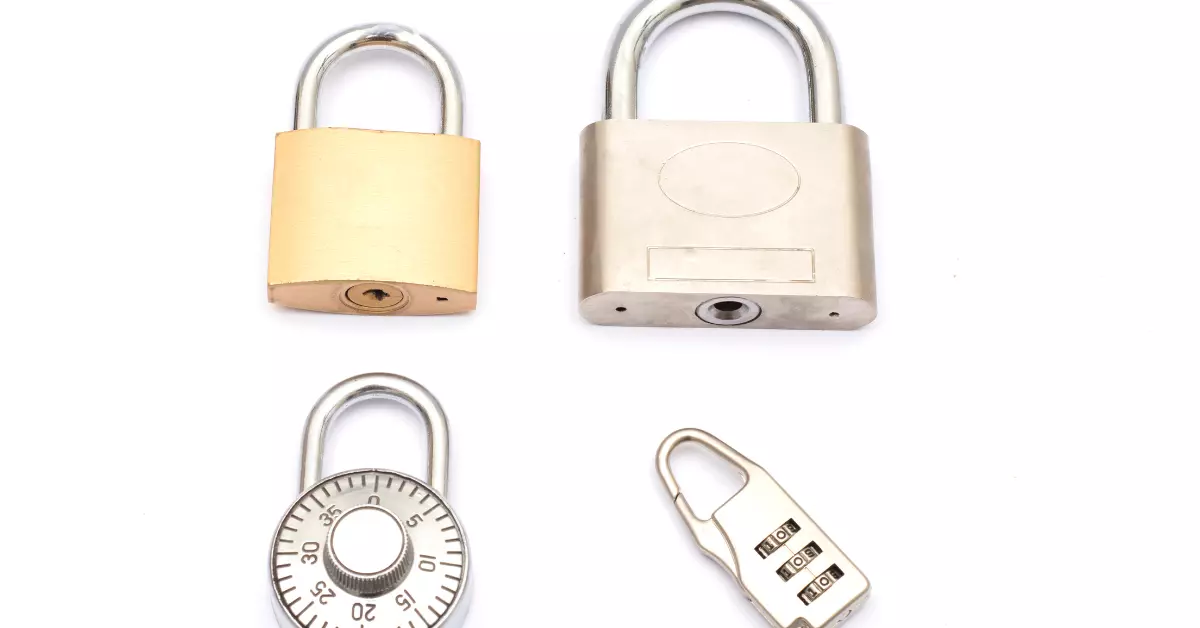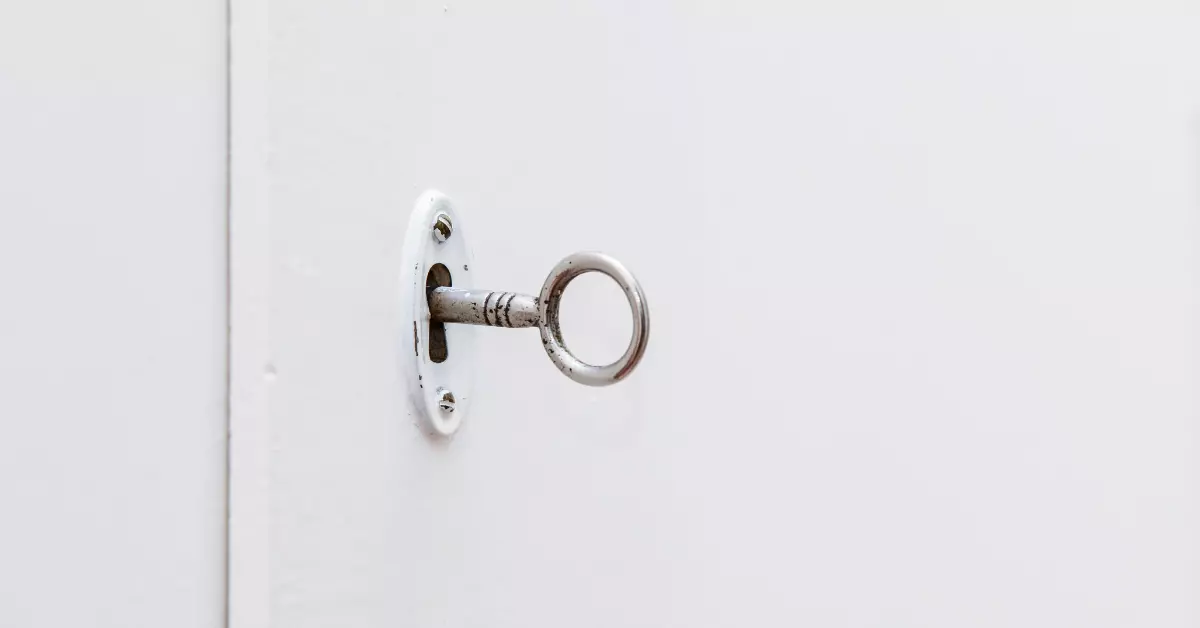Can Tenant Change Locks New York? – Rental Awareness
In new york, a tenant may change locks with the landlord’s consent or if the landlord fails to provide adequate security. However, violating the terms of the lease or changing locks without permission could result in legal consequences.
Changing a lock without informing the landlord in writing could be considered a violation of lease terms and result in eviction.
However, the tenant may change the locks with the landlord’s approval or if the landlord fails to provide adequate security.
This article outlines the procedures that a tenant must follow to change locks in new york and the legal consequences for violating lease terms.

The Legal Rights Of Tenants With Respect To Locks In New York
If you’re a tenant in new york, it’s crucial to understand your legal rights with respect to changing locks. Here we’ll discuss relevant tenant law and answer some commonly asked questions related to changing locks in new york.
What Is A Tenant Law, And How Does It Apply To Changing Locks In New York?
Tenant law in new york provides guidelines that govern the relationship between tenants and landlords. Changing locks falls under this broad category and is subject to certain provisions. Here are some key points:
- Tenants have the right to change locks in new york.
- Tenants should notify their landlords if they decide to change their locks.
- Landlords are obligated to provide tenants with a key to any new locks they install.
Are Tenants Allowed To Change Locks Without Consenting Their Landlords?
Yes, tenants in new york are legally allowed to change their locks without seeking permission from their landlords. However, it’s good practice to notify them of any changes to avoid any possible confusion or conflict later on.
Furthermore, if a landlord has requested access to an apartment for inspection or repair, then the tenant cannot change the locks without the landlord’s consent.
Are Landlords Legally Obliged To Disclose Any Restrictions On Changing Locks In Their Lease Agreements?
Yes, landlords in new york have to provide tenants with lease agreements that contain all the necessary terms and conditions to govern their relationship.
Any restrictions on changing locks should be mentioned in the lease agreement. If the landlord fails to disclose any restrictions on changing locks, the tenant can change the lock.
The Consequences Of Violating The Tenant Law When Changing Locks
Violating tenant law can have serious ramifications for tenants. If a tenant changes the locks without legally informing the landlord, the landlord has the right to remove the lock and terminate the lease agreement. If a tenant violates tenancy laws multiple times, the landlord has the right to evict the tenant.
Tenants in new york have the right to change their locks under tenancy law provisions. It’s good practice to notify landlords of any lock changes and check lease agreements for any restrictions.
Violating tenancy laws related to locks can lead to severe consequences, including lease termination or eviction.
Types Of Locks That Tenants Can Change In New York
As a tenant in new york, there are certain locks that you are allowed to change without seeking prior permission from your landlord. Here are the types of locks that are allowed to be changed:

Deadbolt locks
These are the most secure type of locks that can be installed by tenants in new york rental units. They cannot be picked easily, and they cannot be opened with a bump key.
Deadbolt locks have a bolt that extends from the door into the frame, making it impossible to force the door open. They are great for securing exterior doors and main entry doors.
Key-in-knob locks
Key-in-knob locks are also known as entry locks. They are the most common type of locks in rental units in new york.
They can be opened with a key from the outside and with a button or a thumb turn from the inside. However, they are not as secure as deadbolt locks.
Interchangeable cores
Interchangeable cores are lock cylinders that can be removed easily and replaced with a new one. This type of lock is commonly used in commercial buildings and complexes.
It provides ease of access to tenants, landlords, and property managers in case of a lockout situation.
Legal Restrictions And Best Practices For Changing Locks In New York
Although tenants can change certain locks in their rental units in new york, there are some legal restrictions and best practices to consider.
The Legal Restrictions On The Type Of Locks That Tenants Can Use
- The tenant cannot change the lock on any door that is used as an emergency exit.
- The tenant cannot change the lock on any door that serves as a main entry point to the building for all tenants and guests.
- The tenant is also required to provide the landlord with a duplicate key to the new lock.
The Best Practices For Changing Locks In A Rental Unit In New York
- Inform your landlord or property manager before you change any locks in your rental unit.
- Always consult your lease agreement before making any changes. Some leases may prohibit tenants from changing any locks in their units.
- Hire a licensed locksmith to install the locks for you to ensure the safety and security of your property.
Can Tenants Hire Locksmiths To Install Their Locks?
Yes, tenants can hire locksmiths to install new locks in their rental units in new york. However, it is important to know who is responsible for the cost of installation.
- If the landlord is required to provide working locks for the unit, they are responsible for the cost of replacing or repairing the locks.
- If the tenant wants to change the locks voluntarily, they are responsible for the cost of purchasing and installing the new locks.
Remember, as a tenant in new york, your security should always be a top priority. In case of any doubts or confusion, always consult your landlord or a licensed locksmith before making any changes to your rental unit’s locks.
Pros And Cons Of Changing Locks As A Tenant In New York
Tenants in new york city may wonder if they have the right to change the locks in their rented units.
While changing locks can provide an extra layer of security, it could also lead to potential drawbacks. Here are some points to consider:

The Benefits Of Changing Locks As A Tenant In New York
- Changing the locks gives tenants exclusive control over who has access to their rented units.
- It provides a better sense of security, especially if one has concerns about the previous tenant’s access or duplicate keys.
- Changing the locks could deter possible intruders or unauthorized entries to the rental unit.
The Potential Drawbacks Of Changing Locks In A Rental Unit
- Changing locks without permission violates the lease agreement with the landlord and could result in legal action.
- The tenant may have to bear the expense of the new lock installation and also provide the landlord with a spare key.
- The tenant may also face difficulty in obtaining permission to change the locks or may not be able to do so at all.
How Can Tenants Ensure That Their Interests Are Protected When Changing Locks In New York?
- Before changing the lock, the tenant should review the lease agreement and seek clarification on the terms related to changing locks.
- The tenant should seek permission from the landlord to avoid any legal complications or breaches of the lease agreement.
- The tenant must provide the landlord with the spare key to the newly installed lock and also keep a spare key themselves.
Alternative Ways For Tenants To Secure Their Rental Units Without Changing Locks
- Tenants could install additional locking mechanisms such as deadbolts or latch guards instead of replacing the lock altogether.
- The tenant could also invest in portable security systems that do not require any installation and are easily movable.
- Tenants could also use door and window alarms to alert them if someone tries to access or break in without the need for changing the lock.
It is important to understand the rights of tenants when changing locks in new york and weigh the pros and cons before taking any steps.
It is recommended that tenants seek permission and follow the lease agreements to protect their interests while ensuring their security needs.
Frequently Asked Questions Of Can Tenant Change Locks New York?
Can A Tenant Change Locks In New York Without Permission?
Yes, in some cases a tenant can change locks without permission. The law allows for this in certain situations such as domestic violence or a break-in.
What Are The Requirements For A Tenant To Change Locks In New York?
A tenant must provide written notice to their landlord before changing locks. The notice must include the reason for changing locks, the new key, and contact information.
Can A Landlord Refuse A Tenant To Change Locks In New York?
Yes, a landlord can refuse a tenant’s request to change locks in certain situations. If there is no valid reason or if the landlord needs access in case of emergency.
Is A Tenant Responsible For Damages Caused By Changing Locks In New York?
Yes, a tenant is responsible for any damages caused by changing locks. The tenant must return the property to its original condition when they move out.
Conclusion
Absolutely, in New York, knowing your rights as a tenant is vital. While you might feel the urge for privacy, remember, you can’t change the locks without your landlord’s permission.
Stay informed, ask first, and ensure you always maintain a positive relationship with your landlord.
Reference
https://ag.ny.gov/sites/default/files/tenants_rights.pdf